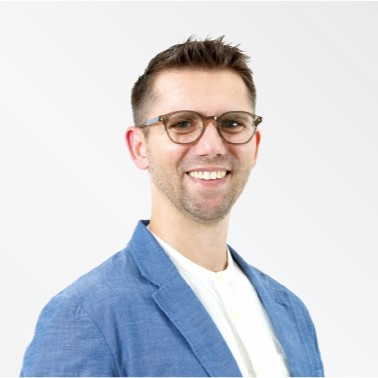å¡åã§å¦ã¶
å¡åã§å¦ã¶æå¡ç´¹ä»
KASPAREK Nickï¼ã«ã¹ãã¬ãã¯ãããã¯ï¼

åææ
ãããã£ã¼ã«
An English education and curriculum studies scholar-practitioner from the American Midwest
æ å½åé
è±èª
æ å½è¬ç¾©
Listening English â
ã»â
¡/ãªã¹ãã³ã°è±èªâ
ã»â
¡
Writing English â
ã»â
¡/ã©ã¤ãã£ã³ã°è±èªâ
ã»â
¡
Reading English â
ã»â
¡/ãªã¼ãã£ã³ã°è±èªâ
ã»â
¡
Speaking English â
ã»â
¡/ã¹ãã¼ãã³ã°è±èªâ
ã»â
¡
Academic Reading/ã¢ã«ãããã¯ãªã¼ãã£ã³ã°
Presentation English/ãã¬ã¼ã³ãã¼ã·ã§ã³ã¤ã³ã°ãªãã·ã¥
ã¡ãã»ã¼ã¸
English has become a vital, diverse, and dynamic global language for communicating and co-constructing ideas across space and time. As such, active English study develops studentsâ capacity to learn from and join global academic conversations. Moreover, with language mediating our experience of our inner and external worlds, new potentialities for thought, action, and education can emerge for oneself and others.
ç 究ã«é¢ããèªå·±ï¼°ï¼²
I'm curious about the intersection of curriculum theory and English language pedagogy. In particular, Iâve been exploring how being playful might be a way of being academic, as well as the potential limitations of playfully studious dispositions in the contemporary university context.
ç 究ãã¼ã
- English language teaching and professional development
- Academic and intellectual dispositions and narrative inquiry into their development
- Curriculum studies with post-reconceptualist curriculum theory
- Potentiality and utopianism in educational thought
- Playfulness, creativity, and humor
- Composition and rhetoric perspectives on writing education
- Queer theory, disability studies, and affect theory
ç 究ã®ç¹å¾´ã»å 容
I enjoy engaging with a wide range of educational theories, philosophies of education, and understandings of language to reconsider the desired ends of liberal arts education and English language education, especially when language and content are integrated (e.g., CLIL or content-based instruction). My publications have focused on language play, creativity, accessibility, and utopianism in education.
My recent research into curriculum theory revolves around theories and practice regarding playful study in higher education. Meanwhile, my complementary research into English language teaching approaches, methods, and teacher development includes bringing in perspectives from queer theory, disability studies, and affect theory.
In addition to theoretical work, my recent work engages with qualitative and post-qualitative approaches to research. Most notably, I am interested in narrative inquiry, especially to explore stories of the emergence of playfully studious dispositions among university students in context.
Finally, I am interested in reflective action research, particularly as ongoing classroom research into improved English language teaching. I hope to extend this research toward more community-engaged research and participatory research.
è«æãªã¹ã
- Kasparek, N. (2023). Maps for further exploration: Paths through article types. Explorations in Teacher Development, 29(1), pp. 1-4. https://td.jalt.org/wp-content/uploads/2023/05/ETD-291-Kasparek.pdf (Editorial)
- Kasparek, N. (2022). Playfully studious teaching as a reparative affective replacement for microfascism. Journal of Curriculum and Pedagogy. https://doi.org/10.1080/15505170.2022.2107587 (Competitive acceptance rate of 20%)
- Kasparek, N. & Lahr, E. J. (2022). Chopping and screwing narrative inquiry to study teacher curiosity curiously. Taboo: The Journal of Culture and Education, 21(1), 29-49. Retrieved from https://digitalscholarship.unlv.edu/taboo/vol21/iss1/4 (Competitive acceptance rate of 15%)
- Kasparek, N. (2018). Teacher as auteur: A multi-year reflection on teacher motivation, creativity, constraints, and collaboration. New Directions in Teaching and Learning English Discussion, 6, 247-253. http://doi.org/10.14992/00016232
- Kasparek, N. (2016). Facilitated play, target language use, and authenticity. New Directions in Teaching and Learning English Discussion, 4, 143-152. http://doi.org/10.14992/00016022
èæ¸
- Kasparek, N. & Turner, M. W. (2020). Puzzling about Special Educational Needs in EFL Teacher Development: A Duoethnographic Inquiry. In R. Lowe & L. Lawrence (Eds.), Duoethnography in English language teaching: Research, reflection, and classroom application (pp. 112-132). Multilingual Matters.
- Kasparek, N. & Turner, M. W. (2017). Harnessing humorous outbidding for the rapid generation of content. In J. Rucynski (Ed.), New ways in teaching with humor (pp. 22-25). TESOL Press.
- Kasparek, N. (2016). Toward a utopian peace education. In T. Ottman, Z. Ritchie, H. Palmer, & D. Warchulski (Eds.), Peace as a global language: Peace and welfare in the global and local community (pp. 27-42). i-universe.
ãã¼ã¯ã¼ã
English language teaching, curriculum studies, CLIL at liberal arts universities, academic dispositions, post-reconceptualist curriculum theory, playfulness, study, writing education, utopianism, post-critical pedagogy

